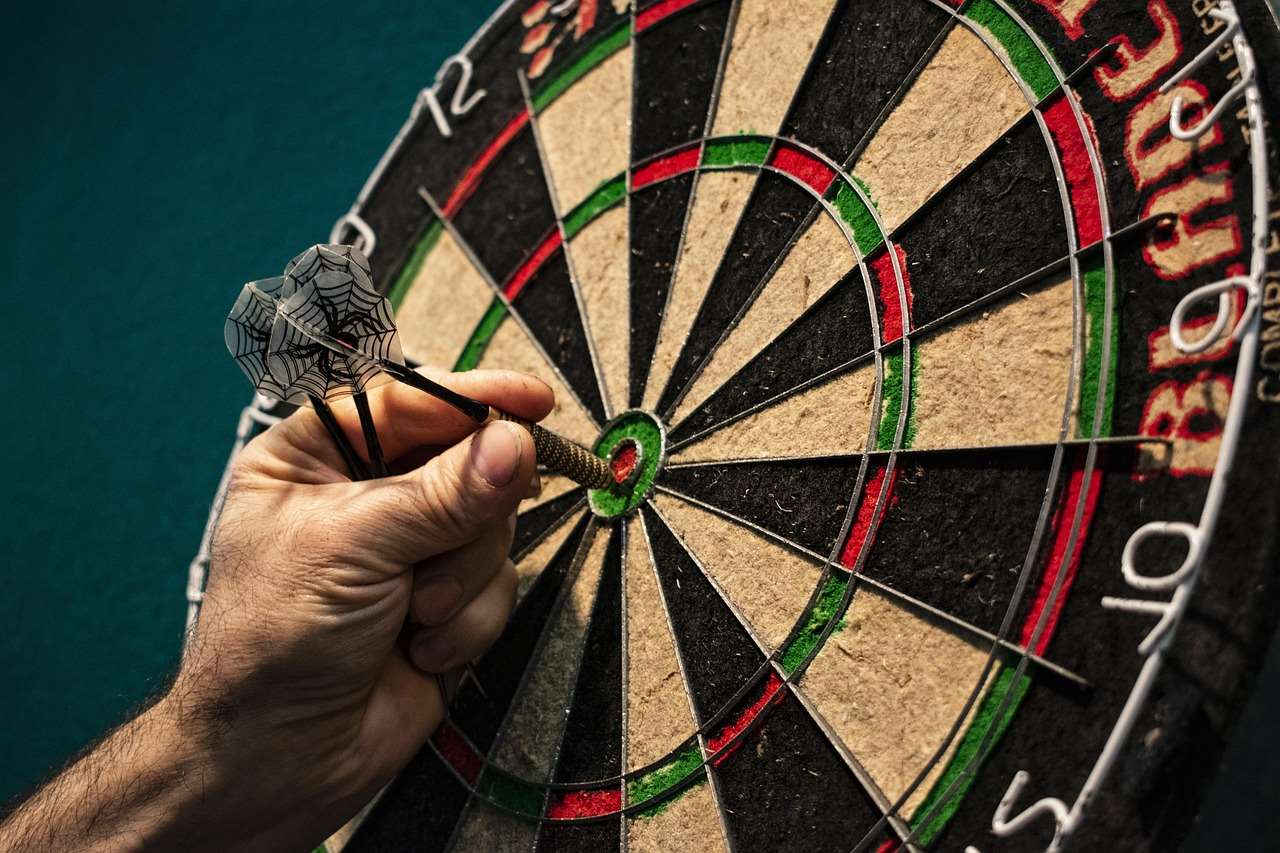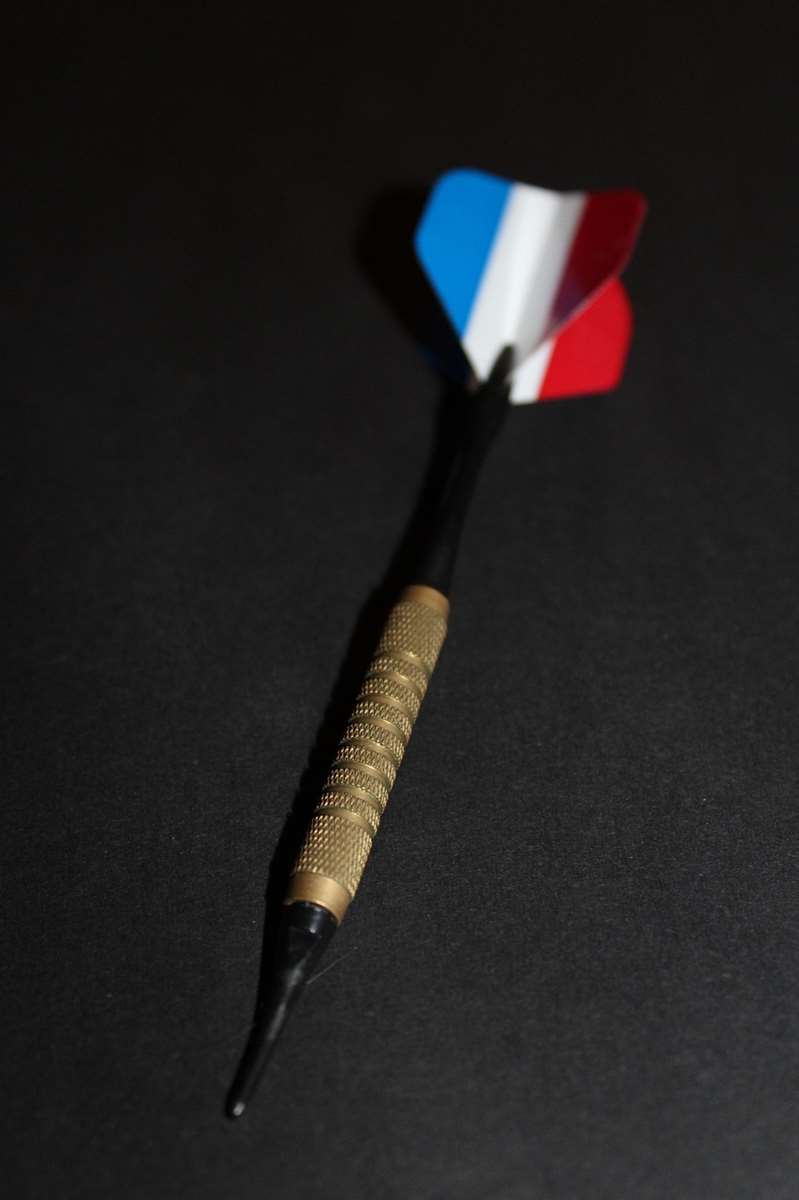Dealing with darts anger is crucial for improving your game and maintaining composure; unchecked frustration can negatively impact your performance. This article will provide practical strategies for managing your emotions while playing darts, helping you to stay focused and enjoy the game more. We’ll cover techniques for identifying triggers, controlling your reactions, and developing a positive mindset, ultimately leading to better results on the oche.
⚠️ Still Using Pen & Paper (or a Chalkboard)?! ⚠️
Step into the future! The Dart Counter App handles all the scoring, suggests checkouts, and tracks your stats automatically. It's easier than you think!
Try the Smart Dart Counter App FREE!Ready for an upgrade? Click above!
Understanding Darts Anger and Its Impact
Darts anger, or frustration stemming from poor performance in darts, is a common experience for players of all skill levels. Whether you’re a beginner struggling to hit the board or a seasoned pro missing crucial doubles, the pressure to perform can lead to intense frustration. This anger can manifest in various ways, including:
- Verbal outbursts: Swearing or yelling after a missed throw.
- Physical reactions: Slamming darts down, kicking the board, or other displays of aggression.
- Negative self-talk: Criticizing your own abilities and dwelling on mistakes.
- Loss of focus: Difficulty concentrating on the next throw due to lingering frustration.
The impact of unchecked darts anger can be significant. It can lead to inconsistent throws, poor decision-making, and a general decline in performance. Furthermore, it can damage your relationships with fellow players and make the game less enjoyable. Learning to manage your emotions is therefore essential for both your success and your overall experience in darts.

Identifying Your Darts Anger Triggers
The first step in managing darts anger is to identify the specific situations or events that trigger your frustration. These triggers can be different for everyone, but some common examples include:
- Missing a crucial double: Failing to close out a leg after setting it up.
- Consecutive bad throws: Experiencing a string of missed targets.
- Opponent’s taunting or trash talk: Feeling provoked by an opponent’s behavior.
- Equipment issues: Having problems with your darts or dartboard.
- Pressure situations: Playing in important matches or with a lot at stake.
To identify your triggers, pay close attention to your emotions and reactions during and after darts games. Keep a journal or make mental notes of the specific circumstances that lead to frustration. Once you understand your triggers, you can start to develop strategies for coping with them.
Common Frustrations Experienced
Many players experience the same types of frustrations. Missing doubles is a very common trigger, but so are missed trebles or even bouncing a dart. Understanding that others have similar issues can ease some of the burden you might be feeling.
Another frustration comes from perceived bad luck. The truth is, darts is a game of statistics, and sometimes luck isn’t on your side. Accepting this reality is important.
Techniques for Controlling Your Reactions
Once you’ve identified your triggers, you can begin to develop techniques for controlling your reactions when those triggers occur. Here are some effective strategies:
- Deep breathing exercises: Take slow, deep breaths to calm your nerves and reduce anxiety. Inhale deeply through your nose, hold for a few seconds, and exhale slowly through your mouth. Repeating this several times can help you regain composure.
- Positive self-talk: Replace negative thoughts with positive affirmations. Instead of saying “I’m terrible at darts,” try saying “I’m improving with every throw.”
- Visualization: Visualize yourself throwing successfully and hitting your target. This can help boost your confidence and reduce anxiety.
- Take a break: If you’re feeling overwhelmed, step away from the dartboard for a few minutes to clear your head. Go for a walk, listen to music, or do something else that helps you relax. Consider using a dartboard clock to time these breaks efficiently.
- Focus on the process, not the outcome: Concentrate on your technique and form rather than the result of your throw. This can help you stay in the present moment and avoid getting caught up in negative thoughts.
Experiment with different techniques to find what works best for you. It may take time and practice to develop these skills, but the effort will be well worth it in the long run.
There are also apps that can help. A Dart Counter App is a great example. Dart Counter App

Developing a Positive Mindset
A positive mindset is essential for managing darts anger and improving your overall performance. Here are some tips for cultivating a more positive outlook:
- Focus on your strengths: Identify your strengths as a darts player and focus on improving them. This can help boost your confidence and make you feel more positive about your game.
- Set realistic goals: Set achievable goals that are challenging but not overwhelming. This can help you stay motivated and avoid getting discouraged by setbacks.
- Learn from your mistakes: View mistakes as opportunities to learn and grow. Analyze what went wrong and identify areas where you can improve.
- Celebrate your successes: Acknowledge and celebrate your successes, no matter how small. This can help you stay positive and motivated.
- Practice gratitude: Take time to appreciate the things you have in your life, both inside and outside of darts. This can help you maintain a positive perspective and reduce stress.
Remember that a positive mindset is not about denying negative emotions, but about managing them in a healthy and constructive way. It’s about choosing to focus on the positive aspects of your game and maintaining a belief in your ability to improve. Be aware of your mental state during a darts deciding leg.
Practice and Preparation to Reduce Anger
Sometimes, frustration comes from feeling unprepared or inadequate. Consistent practice is key to improving your skills and building confidence. Focus on the fundamentals: grip, stance, and throw. Regular practice sessions can help you identify and correct weaknesses in your technique, leading to more consistent and accurate throws. This increased competence can significantly reduce the likelihood of experiencing darts anger.
In addition to practice, proper preparation before each game is also crucial. This includes warming up your arm and shoulder muscles, mentally rehearsing your throws, and ensuring that your equipment is in good condition. A well-prepared player is more likely to perform at their best, reducing the potential for frustration.

Dealing with Opponents and Pressure
The behavior of your opponents and the pressure of competition can also contribute to darts anger. Here are some tips for managing these challenges:
- Ignore taunting or trash talk: Don’t let your opponents get under your skin. Focus on your own game and ignore any attempts to distract or provoke you.
- Control your body language: Maintain a calm and confident demeanor, even when you’re feeling frustrated. Avoid showing signs of anger or discouragement, as this can give your opponents an advantage.
- Embrace the pressure: View pressure situations as opportunities to test your skills and improve your performance. Don’t be afraid to take risks and go for the win.
- Be a good sport: Win or lose, always show respect for your opponents and the game. Congratulate your opponents on their successes and avoid making excuses for your own failures.
Remember that darts is a game of skill and strategy, but it’s also a game of sportsmanship. By maintaining a respectful and positive attitude, you can create a more enjoyable and rewarding experience for yourself and your fellow players. Are you looking for a darts set with case?
Seeking Support and Resources
If you’re struggling to manage darts anger on your own, don’t hesitate to seek support from others. Talk to your fellow players, coaches, or a sports psychologist. They can offer valuable insights and guidance on how to cope with your emotions and improve your performance. There are even online communities and forums where you can connect with other darts players and share your experiences. These resources can provide a sense of community and support, helping you feel less alone in your struggles.
Consider joining a local darts league or club. This can provide a structured environment for practice and competition, as well as opportunities to socialize with other players. A supportive community can help you stay motivated and positive, even when you’re facing challenges. Sometimes it may require you to consider getting a darts stand maken if your home setup is not optimal.

Long-Term Strategies for Emotional Regulation
Managing darts anger is an ongoing process that requires long-term commitment and effort. Here are some strategies for developing sustainable emotional regulation skills:
- Mindfulness meditation: Practice mindfulness meditation to increase your awareness of your thoughts and emotions. This can help you identify triggers early on and respond to them in a more mindful way.
- Cognitive behavioral therapy (CBT): CBT is a type of therapy that can help you identify and change negative thought patterns and behaviors. This can be particularly helpful for managing anxiety and anger related to darts performance.
- Stress management techniques: Incorporate stress management techniques into your daily routine, such as exercise, yoga, or spending time in nature. This can help you reduce overall stress levels and make you more resilient to triggers.
- Regular self-reflection: Take time to reflect on your experiences and identify areas where you can improve your emotional regulation skills. This can help you stay on track and make progress over time.
Remember that emotional regulation is a skill that can be learned and developed over time. By consistently applying these strategies, you can gradually improve your ability to manage darts anger and achieve your full potential as a player.

Conclusion
Managing darts anger is critical for improving your game and enhancing your overall enjoyment of the sport. By understanding your triggers, implementing control techniques, and cultivating a positive mindset, you can transform frustration into focus and achieve better results on the oche. Remember to practice regularly, prepare thoroughly, and seek support when needed. Don’t let anger control your game; take control of your emotions and unleash your full potential! Want to learn more and improve your skills? Join our online community today! See information about darts online scoring and how to aim darts in game pigeon online to improve your game.
Hi, I’m Dieter, and I created Dartcounter (Dartcounterapp.com). My motivation wasn’t being a darts expert – quite the opposite! When I first started playing, I loved the game but found keeping accurate scores and tracking stats difficult and distracting.
I figured I couldn’t be the only one struggling with this. So, I decided to build a solution: an easy-to-use application that everyone, no matter their experience level, could use to manage scoring effortlessly.
My goal for Dartcounter was simple: let the app handle the numbers – the scoring, the averages, the stats, even checkout suggestions – so players could focus purely on their throw and enjoying the game. It began as a way to solve my own beginner’s problem, and I’m thrilled it has grown into a helpful tool for the wider darts community.